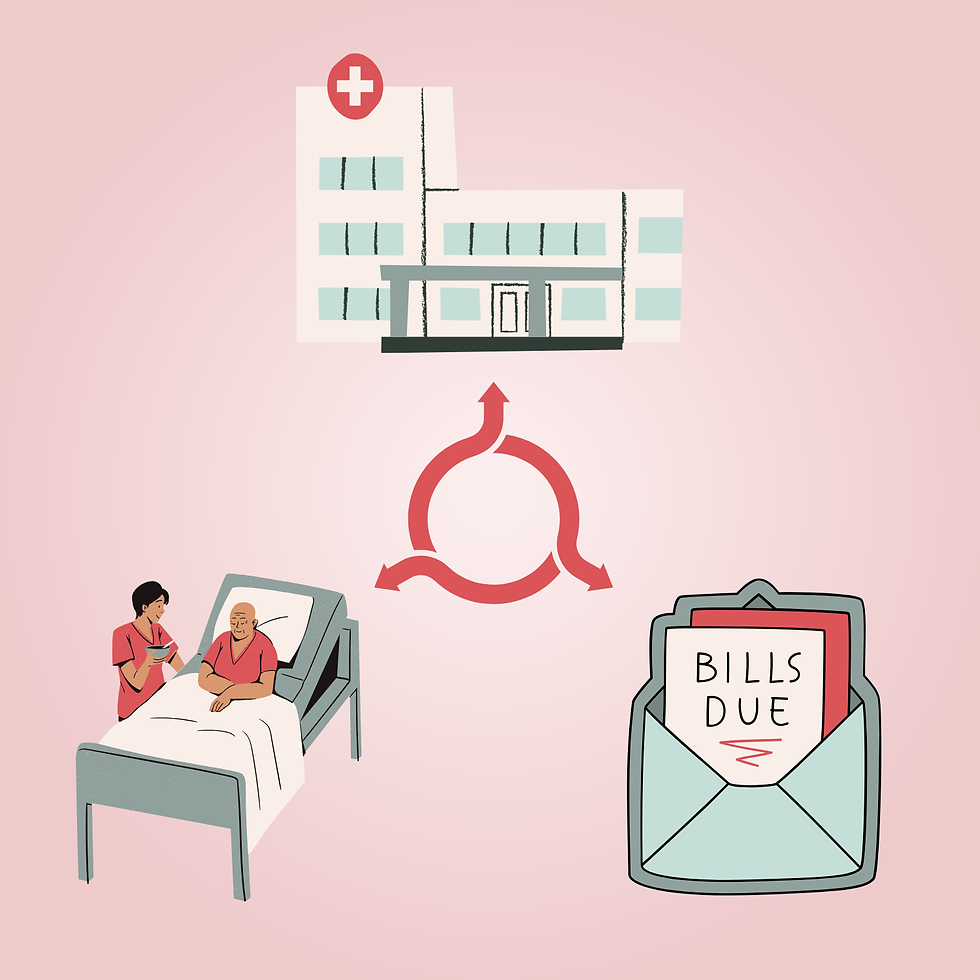Clean Eating: A Path to Wellness or a Veiled Form of Elitism?
- Margarita Krylova
- Nov 18, 2024
- 4 min read

In recent years, the concept of "clean eating" has gained significant traction, promising improved health and wellness through the consumption of whole and minimally processed foods. At its core, the movement advocates for diets rich in fruits, vegetables, whole grains and lean proteins, while avoiding processed foods. While the intentions behind clean eating are commendable, its broader implications deserve scrutiny—particularly the health benefits, socioeconomic factors, and potential for elitism.
The appeal of clean eating is grounded in evidence that whole, unprocessed foods contribute to better health. Diets rich in unprocessed foods are consistently linked to reduced risks of chronic diseases such as heart disease, diabetes, and certain cancers. One study highlighted that individuals with a whole-foods-based diet have a 31% lower risk of heart disease than those consuming more processed foods.1 These findings underscore the health benefits of clean eating. However, while these are significant, it is worth exploring other facets of this movement that may complicate its adoption for many.
Consistently access and affordability of whole foods is not universally feasible. Food insecurity - marked by inconsistent or inadequate access to nutritious food - affects many vulnerable groups, including students, low-income families, and individuals living in food deserts. A survey by the Hope Center for College, Community, and Justice revealed that 39% of students at four-year colleges experienced food insecurity in the previous month, reinforcing the difficulty of adhering to a clean diet.2
The concept of food deserts further compounds this issue. A study published in the American Journal of Public Health found that low-income neighborhoods often have fewer supermarkets and more convenience stores, limiting access to fresh produce.3 For residents in these communities, eating healthy is not a matter of discipline or willpower, but rather of limited availability and affordability. Additionally, the financial implications of clean eating cannot be overlooked; a study in the Journal of Nutrition Education and Behavior found that healthier food options were typically more expensive than processed alternatives, putting them out of reach for many.4
The clean eating movement even has the potential to foster social stigmatization. Labeling foods as “clean” or “pure” can create a moral hierarchy around dietary choices, leading to feelings of shame or inadequacy among those unable to adopt the lifestyle. Further, this can exacerbate eating disorders such as orthorexia nervosa - a condition characterized by an unhealthy obsession with healthy eating. The movement can also perpetuate social inequalities. Food deserts and economic constraints disproportionately impact low-income communities, making it harder for them to follow clean eating guidelines.5 In this way, clean eating often prioritizes the interests of affluent individuals over basic accessibility issues faced by marginalized populations.
To address these challenges, the conversation around clean eating needs to evolve. Policymakers should prioritize expanding access to affordable, nutritious food in underserved areas. Initiatives such as urban agriculture and mobile food markets have proven effective in increasing access to fresh produce in food deserts. Additionally, social campaigns should promote balanced and flexible diets, avoiding the rigid terminology associated with clean eating. For instance, the Health at Every Size (HAES) model advocates for health-promoting behaviors irrespective of weight, encouraging an inclusive view of wellness.6 Healthcare professionals can also play a vital role by guiding patients towards practical, achievable habits that fit individual circumstances. Research shows that flexible, sustainable approaches are more effective for long-term health outcomes than rigid adherence to guidelines. Finally, incorporating mental health resources into dietary education could help individuals develop a balanced relationship with food, free from guilt or fixation.
All in all, while the clean eating movement has raised awareness about the health benefits of whole foods, it is certainly a multifaceted issue with clear limitations. Moving forward, a nuanced approach to nutrition is needed - one that is inclusive, culturally sensitive, and economically realistic. Good nutrition should not be a marker of privilege; it should be an accessible option for everyone, regardless of socioeconomic status. As the advocacy for healthier eating habits continues, tackling the systemic barriers that limit access to nutritious food could drive a positive shift towards an equitable food system that promotes universal health and well-being.
Reviewed by Radhika Subramani
Graphic by Yasmine Kwong
References
1. Yu E, Malik VS, Hu FB. Cardiovascular Disease Prevention by Diet Modification: JACC Health Promotion Series. J Am Coll Cardiol. 2018;72(8):914. doi:10.1016/j.jacc.2018.02.085
3. Hilmers A, Hilmers DC, Dave J. Neighborhood Disparities in Access to Healthy Foods and Their Effects on Environmental Justice. Am J Public Health. 2012;102(9):1644. doi:10.2105/AJPH.2012.300865
4. Rao M, Afshin A, Singh G, Mozaffarian D. Do healthier foods and diet patterns cost more than less healthy options? A systematic review and meta-analysis. BMJ Open. 2013;3(12):e004277. doi:10.1136/bmjopen-2013-004277



Comments